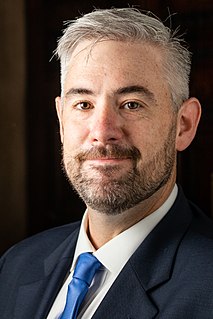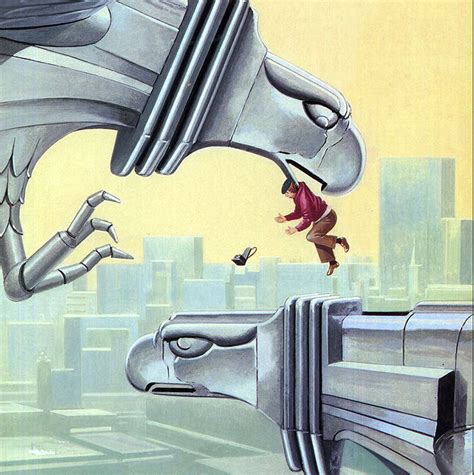A Quote by Yuval Noah Harari
Modernity is a deal. The entire contract can be summarised in a single phrase: humans agree to give up meaning in exchange for power.
Related Quotes
It's a social contract we make. We're willing to give up certain things. We give you the right to tax us. We give you the right to lock us up. We give you the right to put us on surveillance, search our homes, whatever and, in exchange, we get a functioning society that keeps us relatively safe, and that's the tradeoff we make.
So what is the difference between "power thinking" and "positive" thinking? The distinction is slight but profound. To me, people use positive thinking to pretend that everything is rosy, when they really believe that it's not. With power thinking, we understand that everything is neutral, that nothing has meaning except for the meaning we give it, and that we are going to make up a story and give something it's meaning.
We said that a single injustice, a single crime, a single illegality, particularly if it is officially recorded, confirmed, a single wrong to humanity, a single wrong to justice and to right, particularly if it is universally, legally, nationally, commodiously accepted, that a single crime shatters and is sufficient to shatter the whole social pact, the whole social contract, that a single legal crime, a single dishonorable act will bring about the loss of ones honor, the dishonor of a whole people. It is a touch of gangrene that corrupts the entire body.
The basic social contract is that citizens agree to follow the law, pay their taxes, and devote their love and loyalty to their country, and in exchange, the nation commits to preserve and protect and serve their interests, safeguard their freedom, and return to them in kind their first allegiance and loyalty.
I think that educators are in sales. Essentially, what you are doing is making an exchange with your class. You're saying, 'Give me your attention. In exchange, I'll give you something else.' The cash register is not ringing. It's not denominated in dollars or cents or euros, but it is a form of sales in a way. It is an exchange.
In all proper relationships there is no sacrifice of anyone to anyone. An architect needs clients, but he does not subordinate his work to their wishes. They need him, but they do not order a house just to give him commission. Men exchange their work by free, mutual consent to mutual advantage when their personal interests agree and they both desire the exchange.
The fascinating thing about standard economic stories is exactly that: they assume that everybody wants that kind of closure. That all human relations are forms of exchange, because if everything is an exchange then it's true that we're both equals. We walk up, I give you something, you give me something, and we walk away. Or I give you something, you don't give me something right now, and you owe me. So if we have any ongoing relationships at all, it's because somebody is in debt.
We humans have had from time unknown the compulsion to name things and thus to be able to deal with them. The name we give to something shapes our attitude toward it. And in ancient thought the name itself has power, so that to know someone's name is to have a certain power over him. And in some societies, as you know, there was a public name and a real or secret name, which would not be revealed to others.
It would reduce the whole instrument to a single phrase, that of instituting a Congress with power to do whatever would be for the good of the United States; and as they would be the sole judges of the good or evil, it would be also a power to do whatever evil they please . . . . Certainly no such universal power was meant to be given them. It [the Constitution] was intended to lace them up straightly within the enumerated powers and those without which, as means, these powers could not be carried into effect.








































